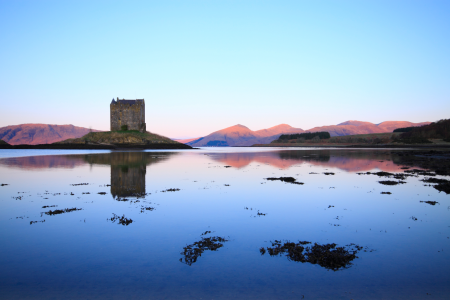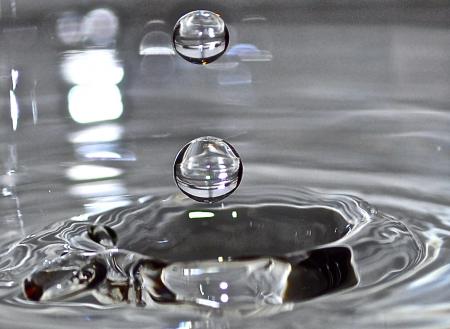
The revised Directive aims to improve the quality of drinking water, provide greater access and information to citizens and introduces a general obligation to apply a risk-based approach.
The proposal is in response to the European Citizens' Initiative 'Right2Water'.
The main elements of the revision include:
- Updates to existing safety standards in line with recommendations of the World Health Organisation
- Empowering authorities to better deal with risks to water supply and engage with polluter
- Improving information to consumers on the efficiency and effectiveness of water suppliers
- A contribution to the transition to a circular economy, notably the obligation to increase consumer confidence in tap water to reduce the amount of bottled water consumed
World Water Day - 22 March
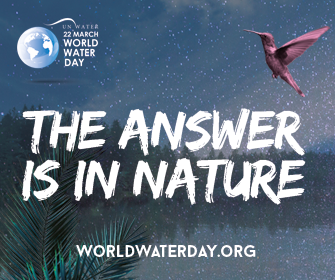
Every year World Water Day is celebrated on 22nd March. This year the theme is 'Nature for Water' with events being held worldwide. The theme is encouraging nature-based solutions to the problems that we currently face, like floods, droughts, and pollution. Check out more at the World Water Day website.
The SULSA Antimicrobial Resistance Conference will be held at the University of Strathclyde 26-27 April 2018. By bringing together individuals across the spectrum of research, health, industry, and policy, the conference aims to inform and coordinate AMR activities in Scotland, including a seed-funding call for registered attendees. For more information, see the conference website.
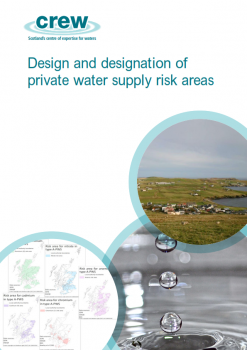
In Scotland, private water supplies are regulated separately under The Private Water Supplies (Scotland) Regulations 2006. Type A private water supplies are currently sampled on an individual basis; however, changes to the Drinking Water Directive specify criteria for a flexible monitoring program, which means that low risk parameters may be removed from sampling under certain circumstances. This risk-based approach is a pragmatic means of complying with Directive requirements and targeting resources towards areas of higher risk.
In this project, a practical weight-of-evidence method was developed to identify where the risk of type A PWS contamination is greatest, based on historic monitoring data from the supplies as well as on the location of the supply in relation to surface and groundwater bodies. Aluminium, nitrate, arsenic, cadmium, and chromium were used as trial parameters to assess the feasibility of the method in Scotland.
Factoring Ecological Significance of Sources into Phosphorus Source Apportionment
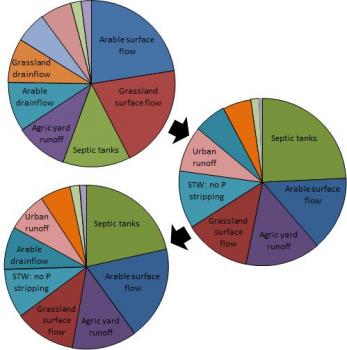
Models describing the relative contributions of phosphorus (P) from different sources to water bodies (source apportionment) are key tools in determining priorities for mitigation strategies within the River Basin Management Planning process under the Water Framework Directive (WFD). Previous source apportionment was simplistic because it was based on total P loads, even though not all P loading has the same ecological significance due to the form or timing of the loading. This project develops a descriptive methodology of how Total P loads provided by existing catchment models could be modified to take account of their impact on ecology. This modification works each modelled source (e.g. arable drainflow, urban runoff, grassland drainflow) through a sequential set of provided tables to adjust loads from Total P to bio-available P and then account for residence time and dilution potential. Data from the Tarland catchment is used to show a worked example of the method and the effect of accounting for ecological significance in the model.
How do we increase public understanding of the benefits provided by SuDS?
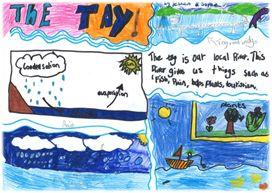
There is a need to increase awareness of the benefits that water provides and how our actions can help protect and improve them. Concerns over water quality and quantity are increasing around the world and these are exacerbated by climate change and other pressures. Arguably, and having a plentiful supply of water from rainfall, Scotland has not been severely affected by these issues. Consequently there is a perception that public understanding of water and the benefits provided is often low. Recent Scottish Government policy is to develop Scotland as the world’s first Hydro Nation which places more emphasis on water as central to our national identity. This agenda is increasing the international profile of Scotland’s skills and experience in supporting the good stewardship of water resources, and increase public awareness of the benefits that water provides and how our actions can help protect and improve them.CREW is developing a programme of knowledge exchange activities to help improve public understanding of water and the benefits that water provides, of which this project is a part.
This project was a public outreach activity that targeted primary and secondary school children located to the north of Dundee where there are excellent examples of SUDS. The key objective was to raise awareness of the Hydro Nation agenda with a scope that was twofold: 1) explain the urban water cycle; and 2) promote awareness and understanding of the local SUDS and related benefits.
New collaboration agreement signed
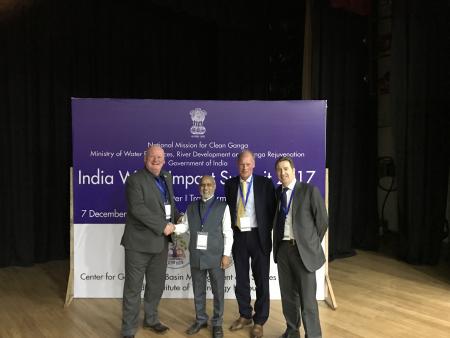
The 2018 conference will be held at the Strathclyde Technology and Innovation Centre in Glasgow from 5-6 February. Tickets will be released soon and more details are available via the Sniffer website.
Scotland's Water Sector Map 2017
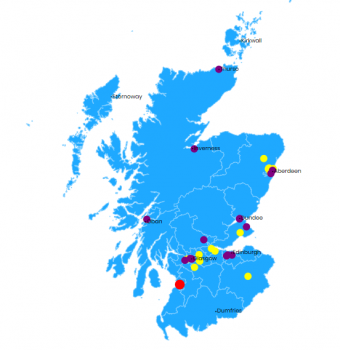
In 2015, a review of Scotland’s Water Sector was published by CREW in support of the Scottish Government’s Hydro Nation Strategy. This work reported on the scope and the scale of Scotland’s Water Sector, and how different parts of the sector link together using visual tools in the form of Scotland’s Water Map. This most recent review was requested in order to update Scotland’s Water Sector Map with new data, enhance functionality, and to expand the previous map to include testing and demonstration facilities in Scotland that may assist water-technology development and research.
Hydro Nation Scholars Programme 2018
